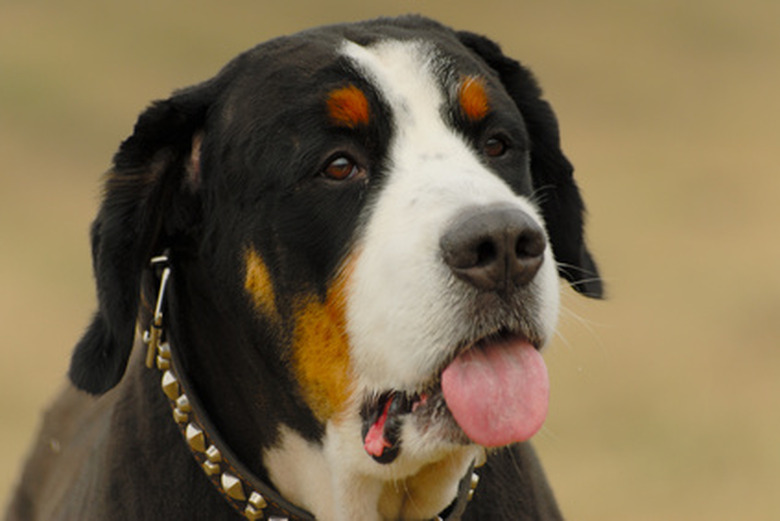Garden Plants That Are Poisonous To Dogs
A home garden full of blooming flowers and lush greenery adds to the curb appeal of any home. Curious dogs find it impossible to resist tasting or nibbling on garden plants and sadly, they sometimes pay a high price for their inquisitive nature. Various shrubs, plants, vegetables and flowers found growing in gardens are highly-toxic to dogs and cause irritation, pain, illness and even death if the dog eats the wrong plant.
Flowers
Various flowers found growing in gardens and flower beds are poisonous to dogs. Foxglove (Digitalis purpurea) is highly toxic when eaten by dogs and causes cardiac difficulties, vomiting, diarrhea and even death in cases of severe reaction. Mums (Chrysanthemum spp.) are a danger to dogs and cause vomiting, diarrhea and clumsiness. The ASPCA states that all parts of daffodils (Narcissus spp)– especially the bulb–are poisonous to dogs. Eating any part of a daffodil causes vomiting and diarrhea. Ingesting large amounts of daffodil leads to convulsions, tremors and low blood pressure. Garden Calla (Zantedeschia aethiopica) causes oral irritation, burning of the mouth and tongue and swallowing difficulties in dogs who have eaten any part of the plant.
- A home garden full of blooming flowers and lush greenery adds to the curb appeal of any home.
- Foxglove (Digitalis purpurea) is highly toxic when eaten by dogs and causes cardiac difficulties, vomiting, diarrhea and even death in cases of severe reaction.
Plants
Plants add a fresh touch of color to the garden but several varieties are toxic if eaten by dogs. Holly (Ilex opaca) is attractive but eating the leaves and berries of the plant may cause diarrhea, vomiting and depression in dogs. Hosta (Hosta plataginea), commonly found growing in many gardens, is poisonous to dogs and when ingested will cause depression, vomiting and diarrhea. The foliage and berries of the branching ivy (Hedera helix) causes dogs to vomit, drool excessively and to suffer from stomach pains. Caladium (Caladium hortulanum) leads to severe oral irritation, vomiting, drooling and difficulty in swallowing when dogs eat any part of the plant.
Shrubs
Shrubs are a popular addition to many yards, however, certain types are poisonous to dogs. The Oleander shrub (Nerium oleander) is one of the most poisonous shrubs found in the garden. All parts of the plant are poisonous and dogs that eat this this shrub will suffer from vomiting, diarrhea, breathing difficulties and cardiac problems, which may lead to sudden death. Common Privet (Ligustrum vulgare) makes a good hedge but when ingested by dogs it leads to stomach problems, rapid heart beat and, in rare cases, death. Rhododendron (Rhododendron spp) is a common shrub that is highly toxic to dogs. According to the ASPCA, ingesting the leaves of the rhododendron causes weakness, loss of appetite, digestive issues, depression, coma and in some cases, death.
- Plants add a fresh touch of color to the garden but several varieties are toxic if eaten by dogs.
- Hosta (Hosta plataginea), commonly found growing in many gardens, is poisonous to dogs and when ingested will cause depression, vomiting and diarrhea.
Vegetables
Vegetables and herbs are healthy for human consumption but some can be toxic to dogs. Broccoli causes digestive upset and gastrointestinal irritation when ingested by dogs. Eating any part of an onion causes dogs to suffer from stomach upset and destroys red blood cells in the body. This may lead to diseases such as Heinz body anemia and hemolytic anemia. Although garlic has many healthy benefits for both man and dog, excessive amounts may cause dangerous health issues for dogs. According to the ASPCA, dogs that have eaten garlic may experience bloody urine, weakness, excessive panting, high heart rate and in severe reactions, the breakdown of red blood cells and Heinz body anemia.
